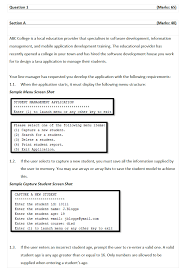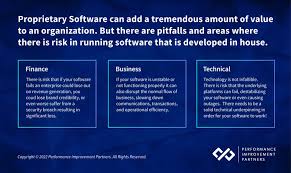Elevate Your Digital Presence with ABC Software Development Solutions
The World of ABC Software Development
Welcome to the exciting realm of ABC Software Development! In today’s digital age, software plays a crucial role in powering businesses, enhancing user experiences, and driving innovation. ABC Software Development is at the forefront of this dynamic industry, creating cutting-edge solutions that meet the evolving needs of our clients.
Our Approach
At ABC Software Development, we believe in the power of innovation and collaboration. Our team of talented developers, designers, and project managers work together seamlessly to bring ideas to life. We follow a structured development process that ensures efficiency, quality, and timely delivery of projects.
Services We Offer
Our range of services caters to a diverse clientele across various industries. Whether you need custom software development, mobile app development, web design, or e-commerce solutions, we have the expertise to turn your vision into reality. We also provide maintenance and support services to ensure that your software remains up-to-date and secure.
Technologies We Work With
ABC Software Development stays abreast of the latest technologies and trends in the industry. Our team is proficient in a wide array of programming languages, frameworks, and tools such as Java, Python, JavaScript, React Native, and more. This enables us to create scalable and robust solutions that align with modern best practices.
Client-Centric Approach
We prioritize client satisfaction above all else. From initial consultation to final delivery, we keep our clients informed and involved every step of the way. Our transparent communication channels ensure that your feedback is incorporated into the development process, resulting in tailor-made solutions that exceed expectations.
Contact Us
If you are ready to embark on a transformative software development journey with ABC Software Development or have any inquiries about our services, feel free to reach out to us. Our dedicated team is here to assist you in realizing your digital aspirations.
Top 5 Essential Tips for Effective ABC Software Development
- Break down tasks into smaller components for easier management.
- Use version control to track changes and collaborate with team members.
- Write clean and concise code for better readability and maintainability.
- Test your code thoroughly to ensure functionality and catch bugs early on.
- Stay updated with the latest trends and technologies in ABC software development.
Break down tasks into smaller components for easier management.
When engaging in ABC software development, a valuable tip is to break down tasks into smaller components. By dividing the project into manageable segments, it becomes easier to track progress, allocate resources effectively, and ensure timely completion. This approach not only simplifies project management but also enhances productivity and facilitates better collaboration among team members. Breaking down tasks into smaller components fosters a structured and organized development process, ultimately leading to successful outcomes in software development endeavors.
Use version control to track changes and collaborate with team members.
Utilizing version control is a crucial tip in ABC software development. By implementing version control systems, developers can effectively track changes made to the codebase, maintain a history of revisions, and collaborate seamlessly with team members. This practice not only ensures code integrity and consistency but also streamlines the development process by enabling efficient teamwork and facilitating easy integration of new features. Version control plays a vital role in enhancing productivity, code quality, and overall project success in the realm of software development.
Write clean and concise code for better readability and maintainability.
When engaging in ABC software development, it is essential to adhere to the tip of writing clean and concise code. By following this practice, developers can significantly enhance the readability and maintainability of their software projects. Clean and concise code is easier to understand, troubleshoot, and modify, leading to more efficient collaboration among team members and smoother project maintenance in the long run. Embracing this approach fosters a culture of clarity and efficiency within the development process, ultimately contributing to the overall success of software projects.
Test your code thoroughly to ensure functionality and catch bugs early on.
Testing your code thoroughly is a critical step in the ABC software development process. By conducting comprehensive testing, you can verify the functionality of your code and identify potential bugs at an early stage. This proactive approach not only helps in delivering a high-quality product but also saves time and resources by addressing issues before they escalate. At ABC Software Development, we emphasize the importance of thorough testing to ensure that our solutions meet the highest standards of performance and reliability.
Stay updated with the latest trends and technologies in ABC software development.
To excel in ABC software development, it is crucial to stay updated with the latest trends and technologies shaping the industry. By keeping abreast of advancements in software development, including new tools, frameworks, and methodologies, professionals can enhance their skills, deliver innovative solutions, and remain competitive in a rapidly evolving landscape. Continuous learning and adaptation to emerging trends not only enrich one’s expertise but also contribute to the creation of cutting-edge software products that meet the ever-changing needs of clients and end-users.




